High-Level Policy Session 7: Inclusiveness, Access to Information and Knowledge for All / Bridging Digital Divides
WSIS
Session 461
Inclusiveness, Access to Information and Knowledge for All
The ability for all to access and contribute information, ideas and knowledge is essential in an inclusive Information Society.
The sharing and strengthening of global knowledge for development can be enhanced by removing barriers to equitable access to information for economic, social, political, health, cultural, educational, and scientific activities and by facilitating access to public domain information, including by universal design and the use of assistive technologies.
A rich public domain is an essential element for the growth of the Information Society, creating multiple benefits such as an educated public, new jobs, innovation, business opportunities, and the advancement of sciences. Information in the public domain should be easily accessible to support the Information Society, and protected from misappropriation. Public institutions such as libraries and archives, museums, cultural collections and other community-based access points should be strengthened so as to promote the preservation of documentary records and free and equitable access to information.
Geneva Declaration of Principles, https://www.itu.int/net/wsis/docs/geneva/official/dop.html
Bridging Digital Divides
Globally, over 1 billion new Internet users have been added over the last five years. Yet under half the world's people (3.7 billion) do not use the Internet. Many of them live in least developed countries (LDCs), landlocked developing countries (LLDCs), and small island developing states (SIDS).
According to the latest ITU data, 87% of people are using the Internet in developed countries, compared with 44% in developing countries. While virtually all urban areas in the world are covered by a mobile-broadband network, worrying gaps in connectivity and Internet access persist in rural areas. Globally, 72% of households in urban areas has access to the Internet at home, almost twice as much as in rural areas (38%).
Connectivity gaps in rural areas are especially serious in LDCs, where 17% of the rural population live in areas with no mobile coverage at all, and 19% of the rural population is covered by only a 2G network.
The COVID-19 pandemic has exacerbated existing digital divides between and within countries related to age, disability, gender, geography and socioeconomic status. With many essential services pushed online, there is a real and present danger that those without broadband Internet access could be left ever further behind.
For many people in the developing world, especially in LDCs, mobile telephony and Internet access remain unaffordable. The cost of broadband Internet access remains above the affordability target set by the Broadband Commission for Sustainable Development – namely, 2% of monthly gross national income (GNI) per capita for a number of LDCs.
According to ITU's latest data, in 84 or nearly half of the analysed set of countries, the cost of the data-only mobile-broadband remains above the 2% target, while fixed broadband access is unaffordable in 111 countries (56%).
This means that children and young people from the poorest households, rural and lower income states are falling even further behind their peers in terms of digital inclusion and are left with fewer opportunities to catch up, facing disproportionate exposure to poverty and unemployment.
Assessing investment requirements to bring about affordable universal connectivity is important to achieve the Sustainable Development Goals (SDGs). In some regions, bridging the connectivity gap means mainly upgrading existing coverage and capacity sites. However, in Sub-Saharan Africa, South Asia, and East Asia/Pacific, nearly half of the necessary radio access network (RAN) infrastructure investments will be greenfield. [1]https://www.itu.int/en/mediacentre/backgrounders/Pages/digital-inclusion-of-all.aspx
We are also fully aware that the benefits of the information technology revolution are today unevenly distributed between the developed and developing countries and within societies. We are fully committed to turning this digital divide into a digital opportunity for all, particularly for those who risk being left behind and being further marginalized. https://www.itu.int/net/wsis/docs/geneva/official/dop.html
First Phase of the WSIS (10-12 December 2003, Geneva) Geneva Declaration of Principles
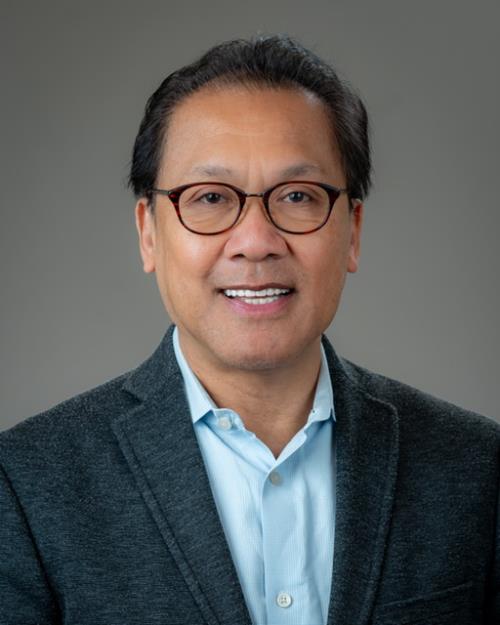
.jpg?maxwidth=500)
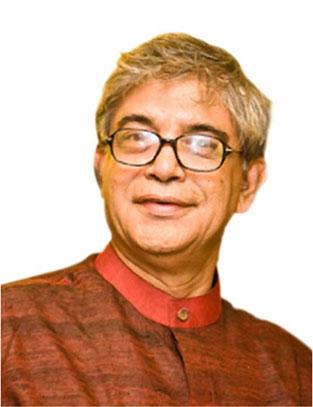
Mustafa Jabbar is very known to the people of Bangladesh and Bengali speaking people of the world for his milestone works. His Bijoy Bangla Keyboard and Software has become the symbol of success of Software industry of Bangladesh and it has also been the icon of Bangla language in the Digital age. He is the only patent holder in Bangladesh of any ICT related product (Bijoy Keyboard) till now. His works for the transformation of the education system to a digital format is leading the country towards a new era: in a digital education system. Mustafa Jabbar is deeply involved in the advocacy activities for the development of Haor areas of Bangladesh.
Mustafa Jabbar came from a remote village of Bangladesh. He got his higher education (Graduation and Masters) in Bangla Language & Literature from the University of Dhaka. He started his career as a journalist on 16 January 1972. He was a member of Mujib Bahini (Bangladesh Liberation Force) in 1971 and participated in the War Of Liberation of Bangladesh. He was involved in the movement of freedom of press and was actively associated wih the Dhaka Union of Journalists. He was elected as the Organizing Secretary of DUJ.
Mr. Mustafa Jabbar took his oath as the Minister on 7 th January, 2019. He was given the charge of the Ministry of Post, Telecommunication & Information Technology.
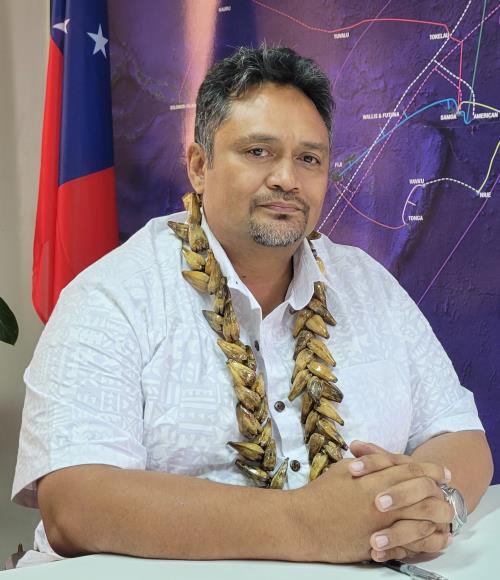
His Excellency, Honourable Toelupe Poumulinuku Onesemo was elected a Member of Parliament in April 2021 from the Territorial Constituency of Falealili, and subsequently appointed as the Minister of Communications and Information Technology.
Hon. Toelupe’s Ministerial portfolio includes the Ministry of Communications and Information Technology, Office of the Regulator, Office of the Clerk of the Legislative Assembly and the Samoa Post Office Limited.
He is also the co-chair of the Samoa National Digital ID Steering Committee (NIDSC), and the Digital Transformation Council (DTC). Hon. Toelupe is the Administrator of the Communications Sector Legislative Acts, namely the Telecommunications Act; Postal Services Act; and the Broadcasting Act, which gives directions to the development and future works of Digital, Postal, and Telecommunication elements of the country.
As Minister of Communications and Information Technology, Hon. Toelupe is committed to making access to the benefits of Samoa’s ICT development successes, inclusive to all citizens of Samoa. He is passionate about the integral role the ICT Sector plays, through the development and implementation of Samoa’s National plans and strategies, in the successful realization of all its development goals.
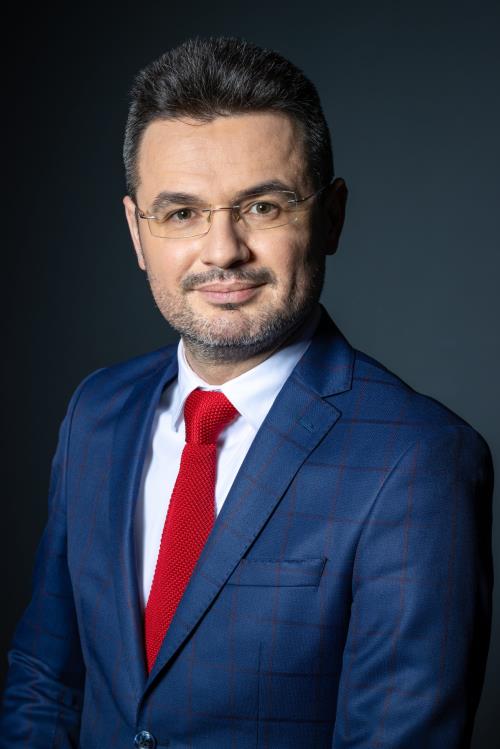
Bogdan Dumea, State Secretary at the Ministry of Research, Innovation and Digitalization, former IT entrepreneur, who chose to promote future technologies in Romania. He is 36 years old and has a long experience in the IT&C area.
By profession, developer and integrator of IT, software and hardware solutions, Bogdan Dumea has extensive experience in the development, administration and cloud hosting of software solutions, database design and data modeling, as well as in the integration of artificial intelligence (machine learning) in operational processes for forecasting and automating transactions.
He has a degree in management and a dissertation in strategic management of the company. He is a connoisseur of the Romanian business environment, both as part of it and as a representative of public institutions.”
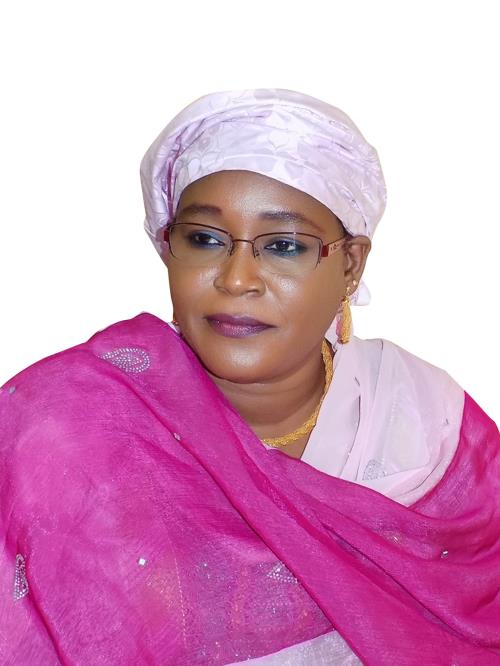
HABIBOU OUMANI Aïchatou, Doctorante BSI.
HABIBOU OUMANI Aïchatou est épouse de M. BETY Ali. Elle est mère de 4 enfants. Elle était institutrice et Psychologue diplômée de Centre for Montessory Teachers Education au College de New York State aux USA. Elle est titulaire d’une Maitrise en Politique Economique et Sociale et un Master Spécialisé en Analyse de Développement de ’Université Catholique de Louvain-La-Neuve (UCL) en Belgique, elle a occupé plusieurs fonctions.
Cadre du Ministère de l’Education Nationale depuis 1991, Mme BETY a servi jusqu’en 2013, dans diverses structures de coopérations internationales et organisations non gouvernementales internationales, notamment en tant que Responsable du Programme de Renforcement des capacités des ONG locales (PPLM/DED), au bureau de la coopération danoise en qualité d’assistante du programme, et chef de département Education, Genre et Peace Building au Catholic Relief Service (CRS).
D’août 2013 à avril 2016, elle a occupé les fonctions de Ministre des Enseignements Secondaires.
Mme BETY Aïchatou Habibou Oumani, est Présidente du Conseil National de Régulation des Communications Electroniques et de la Poste (PNRCEP), depuis mai 2016.
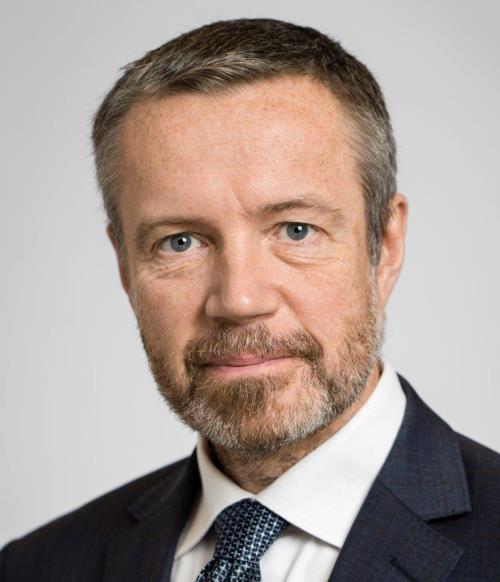
Appointed by the Swedish Government, Dan Sjöblom is the Director-General of the Swedish Post and Telecom Authority (PTS) since February 1, 2017.
He was in 2020 the Chair of the Body of European Regulators for Electronic Communications (BEREC). In 2021 he was vice Chair for the Eastern Partnership Electronic Communications Regulators Network (EaPeReg).
Prior to taking up his position, Mr. Sjöblom was the Director General of the Swedish Competition Authority from 2009 to 2017.
He is also board member of the Swedish Broadband Council.
Mr. Sjöblom performed various functions as a civil servant at the European Commission between 1996-2009. He holds a Master of Laws from Stockholm University.
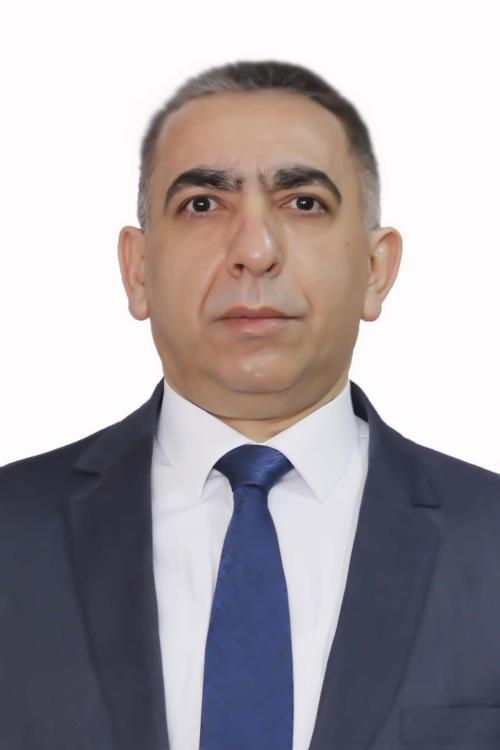
11 October 2021-currently Ministry of Digital Development and Transport, Deputy Head of Administration
9 July 2021-11 October 2021 Ministry of Communications and High Technologies, Head of the Public Relations and citizens’ reception department
9 February 2021-9 July 2021 Ministry of Communications and High Technologies, Head of the Legal department
15 January 2020-8 February 2021 Cabinet of the Ministers of the Republic of Azerbaijan, Deputy Head of the Department of the Law and Legislation
3 December 2018- 15 January 2020 Ministry of Transport, Communications and High Technologies, Deputy Head of the Legal department
25 January 2018- 3 December 2018 Ministry of Transport, Communications and High Technologies, Chief consultant of the Legal department
10 December 2015- 24 January 2018 Ministry of Communications and High Technologies, Chief consultant of the Legal department
14 August 2014- 10 December 2015 Ministry of Communications and High Technologies, Head of the Legal and HR department
1 March 2005- 14 August 2014 Ministry of Communications and Information Technologies, Head of the Legal and HR department
7 May 2004- 1 March 2005 Ministry of Communications and Information Technologies, Legal Advisor to the Minister
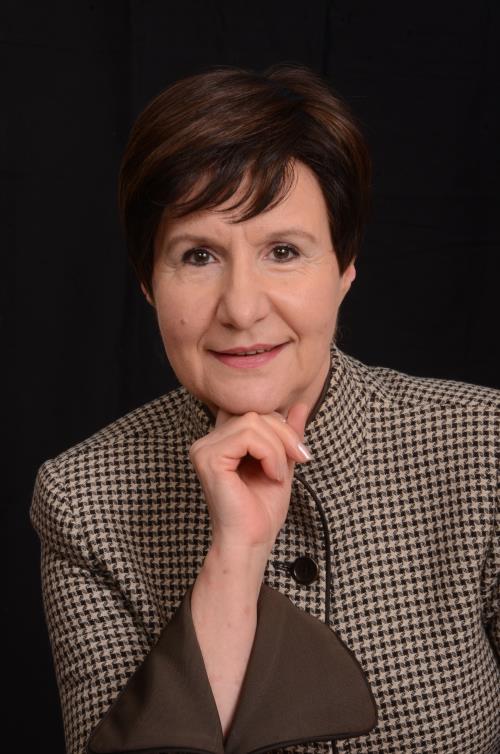
Caterina Berbenni-Rehm is a Digital Transformation Innovator and strategic, but practice-oriented Entrepreneur with extensive business, economic, social and scientific management experience at European and international level.
She has more than 25 years’ experience with European Institutions, in contributing to formal consultations and hearings, International Public Relations, as well as coordinating the Research&Development, the deployment of projects’ results and organizing activities and events. Author and co-author on a variety of reports related to social strategic foresight, the deployment of innovation results in Europe, including conceptual and strategic analysis, project specifications, functional pre-standards, impact analysis and best practices reports on business issues, socio-economic and sustainability assessments.
Caterina began her marketing career with Ferrero Germany and, after that, directed a cultural exchange organisation with responsibility for 153 people. After leading interdisciplinary teams in knowledge & technology transfer from research to industry, managing projects up to rollout of the most innovative results, since 2008 she is CEO of PROMIS@Service, a spin-off of well administered R&D Innovation results co-funded by the EU Commission that are focused on multilingual interactive services for business, research and education.
Recognised thought leader and keynote speaker at international conferences, Caterina was co-founder of the ‘European Entrepreneurial Regions Initiative’ taken up by the Committee of the Regions, Brussels, pledger and co-founder of the ‘Digital Skills for Job Coalition’; former vice-chair of the EU Commission’s High-Level Advisory Group DG Research for SMEs. She is currently member of the Advisory Board of AI&Society – Artificial Intelligence and Society Journal, Springer; member of the EU Commission’s Ethical Review and European Innovation Council Business Coach (Transition and Accelerator), NATO Innovation Partner. Caterina, holds a PhD in modern Philology and is author of 13 international publications.
Details in: World's Best Performing CEOs to Watch in 2022 à https://worldsleaders.com/caterina-berbenni-rehm-a-profound-strategist-and-innovation-manager-with-expertise-in-various-industries/
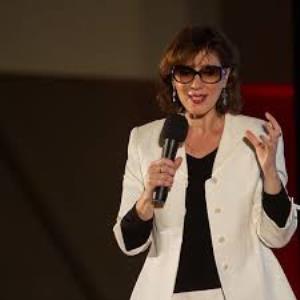
Tatyana Kanzaveli has gone from a programmer to senior executive at Big 5 to founder and CEO of a startup company along her 20 year career, recognized as a thought leader, mentor for her ability to guide Fortune 500 and startup companies through business challenges.
She’s worked for major companies like PricewaterhouseCoopers and Fujitsu and startups in the early days of the Web.
Tatyana has personally helped companies jump from 0 to millions in revenue even during the toughest economic times. She opened new verticals and markets.
Today she is the founder and CEO of Open Health Network, the startup in a Big Data, Blockchain and Artificial Intelligence in Healthcare space. PatientSphere by Open Health Network has been featured in Venture Beat, Mobile Health News, and other prominent publications.
She is a mentor at 500Startups and Richard Branson Entrepreneurs Centre and serves on boards for private companies. She also is licensee and organizer of highly notable TEDxBayArea conferences, she is a frequent speaker at US and International conferences on innovation, entrepreneurship and digital health.
Tatyana has been featured in the White House blog , spoke at the United Nations, presented at the first White House Demo Day hosted by the President Obama, did a TEDx talk; keynoted at WEBIT, WSIS and other international conferences.
Tatyana has been recognized as one of the top 10 Influential Women in Healthcare IT in 2015 and by Forbes as one of the top 50 women-led startup in tech founders.
Tatyana was USSR chess champion, played in the same team with Gary Kasparov, she loves to cook and kayak.
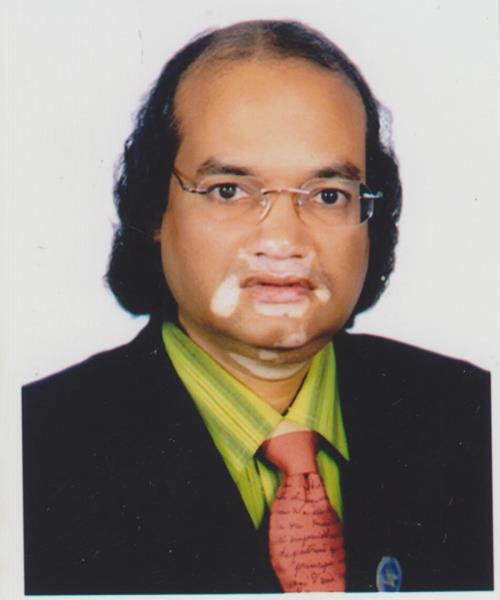
For over two decades, AHM Bazlur Rahman is serving as CEO of Bangladesh NGOs Network for Radio and Communication (BNNRC), the largest Community Media broadcasting and ICT4D alliance of Bangladesh focused on people around the country in line with promoting UN WSIS action line and UN IGF localization.
Rahman strengthens the impact and collective voice of the multi-stakeholder and leads its engagement on a wide range of policy and programs with the highest levels of the U.N., governments, media, academia, and civil society actors about ICT4D.
He has been led engagement of Bangladesh government with the International Telecommunication Union on WSIS process since 2002 and Internet policy issues since 2006, participating in numerous international conferences and associated preparatory work. He has strong skills in strategy, planning, policy development and people’s diplomacy, and management. He co-founded BNNRC, Bangladesh Working Group on WSIS, Bangladesh IGF, Bangladesh Youth IGF. He has been regularly participating the WSIS forum as a speaker in the High-Level Interactive Policy Sessions. He was the strategic Council member of the UN Global Alliance for ICT and Development (UN GAID).
He has promoted Report of the UN Secretary-General’s High-level Panel on Digital Cooperation report, the UN Secretary-General’s High-level Panel on Digital Cooperation Roadmap on Digital Cooperation and United Nations Secretary-General’s Our Common Agenda (2021) in Bangladesh facilitator.
He is a recipient of awards of the UN WSIS prize winner 2016 and Champion 2017, 2019, 2020 & 2021 for UN WSIS action line localization.
After receiving the prestigious the United Nations recognition for the seventh times, he has driven stakeholders more effectively which resulted in sharp rise in research and development AI, OTT, Blockchain, IoT, DNS ecosystem, Big Data, Data Privacy & Data Localization, Fintech and STEAM in development process in ensuring at the response through an equity lens & Shaping the Future of Media, Entertainment & Culture in the era of Fourth Industrial Revolution.
He holds Bachelor of Arts (BA) from University of Dhaka and Master of Social Science (MSS) in Government and Politic from Asian University of Bangladesh. He enjoyed the legislative Development fellowship from USA under the US Department of State.
-
 C1. The role of governments and all stakeholders in the promotion of ICTs for development
C1. The role of governments and all stakeholders in the promotion of ICTs for development
-
 C2. Information and communication infrastructure
C2. Information and communication infrastructure
-
 C3. Access to information and knowledge
C3. Access to information and knowledge
-
 C4. Capacity building
C4. Capacity building
-
 C5. Building confidence and security in use of ICTs
C5. Building confidence and security in use of ICTs
-
 C6. Enabling environment
C6. Enabling environment
-
 C7. ICT applications: benefits in all aspects of life — E-government
C7. ICT applications: benefits in all aspects of life — E-government
-
 C7. ICT applications: benefits in all aspects of life — E-business
C7. ICT applications: benefits in all aspects of life — E-business
-
 C7. ICT applications: benefits in all aspects of life — E-learning
C7. ICT applications: benefits in all aspects of life — E-learning
-
 C7. ICT applications: benefits in all aspects of life — E-health
C7. ICT applications: benefits in all aspects of life — E-health
-
 C7. ICT applications: benefits in all aspects of life — E-employment
C7. ICT applications: benefits in all aspects of life — E-employment
-
 C7. ICT applications: benefits in all aspects of life — E-environment
C7. ICT applications: benefits in all aspects of life — E-environment
-
 C7. ICT applications: benefits in all aspects of life — E-agriculture
C7. ICT applications: benefits in all aspects of life — E-agriculture
-
 C7. ICT applications: benefits in all aspects of life — E-science
C7. ICT applications: benefits in all aspects of life — E-science
-
 C8. Cultural diversity and identity, linguistic diversity and local content
C8. Cultural diversity and identity, linguistic diversity and local content
-
 C9. Media
C9. Media
-
 C10. Ethical dimensions of the Information Society
C10. Ethical dimensions of the Information Society
-
 C11. International and regional cooperation
C11. International and regional cooperation
-
 Goal 1: End poverty in all its forms everywhere
Goal 1: End poverty in all its forms everywhere
-
 Goal 2: End hunger, achieve food security and improved nutrition and promote sustainable agriculture
Goal 2: End hunger, achieve food security and improved nutrition and promote sustainable agriculture
-
 Goal 3: Ensure healthy lives and promote well-being for all
Goal 3: Ensure healthy lives and promote well-being for all
-
 Goal 4: Ensure inclusive and equitable quality education and promote lifelong learning opportunities for all
Goal 4: Ensure inclusive and equitable quality education and promote lifelong learning opportunities for all
-
 Goal 5: Achieve gender equality and empower all women and girls
Goal 5: Achieve gender equality and empower all women and girls
-
 Goal 6: Ensure access to water and sanitation for all
Goal 6: Ensure access to water and sanitation for all
-
 Goal 7: Ensure access to affordable, reliable, sustainable and modern energy for all
Goal 7: Ensure access to affordable, reliable, sustainable and modern energy for all
-
 Goal 8: Promote inclusive and sustainable economic growth, employment and decent work for all
Goal 8: Promote inclusive and sustainable economic growth, employment and decent work for all
-
 Goal 9: Build resilient infrastructure, promote sustainable industrialization and foster innovation
Goal 9: Build resilient infrastructure, promote sustainable industrialization and foster innovation
-
 Goal 10: Reduce inequality within and among countries
Goal 10: Reduce inequality within and among countries
-
 Goal 11: Make cities inclusive, safe, resilient and sustainable
Goal 11: Make cities inclusive, safe, resilient and sustainable
-
 Goal 12: Ensure sustainable consumption and production patterns
Goal 12: Ensure sustainable consumption and production patterns
-
 Goal 13: Take urgent action to combat climate change and its impacts
Goal 13: Take urgent action to combat climate change and its impacts
-
 Goal 14: Conserve and sustainably use the oceans, seas and marine resources
Goal 14: Conserve and sustainably use the oceans, seas and marine resources
-
 Goal 15: Sustainably manage forests, combat desertification, halt and reverse land degradation, halt biodiversity loss
Goal 15: Sustainably manage forests, combat desertification, halt and reverse land degradation, halt biodiversity loss
-
 Goal 16: Promote just, peaceful and inclusive societies
Goal 16: Promote just, peaceful and inclusive societies
-
 Goal 17: Revitalize the global partnership for sustainable development
Goal 17: Revitalize the global partnership for sustainable development